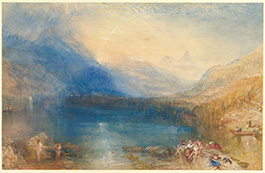Slowly Eroding Christianity
- DAVID CARLIN
Christianity has been under secular attack (as opposed to Islamic attack) for more than three centuries now, ever since the Deists began attacking it in the late 1600s.
 Deism began in England, but jumped over to France, where it flourished despite the fact — or perhaps rather because of the fact — that France was an overwhelmingly Catholic country.
Deism began in England, but jumped over to France, where it flourished despite the fact — or perhaps rather because of the fact — that France was an overwhelmingly Catholic country.
In England, if you were a Protestant who didn't like the Church of England, you could become a non-Anglican Protestant. England had an ample supply of dissenting churches and sects. Deism wasn't the only alternative to Anglicanism. But in France, there were only two items on the menu of religions, Catholicism and Deism. If you didn't like Catholicism (and many Frenchmen didn't), you had little choice but to become a Deist. Once Deism began to thrive in France, a third option was quite naturally added to the menu: atheism. If you wanted to get rid of Christianity, why not get rid of its foundation, belief in God? From France, Deism spread to other countries, especially the Protestant parts of Germany.
Deists came in two varieties. Some Deists (like Thomas Jefferson and Immanuel Kant) had more or less friendly feelings toward Christianity, even though they considered it to be inferior to Deism. Others (like Voltaire and Tom Paine) hated Christianity and wished for its disappearance from the world as soon as possible.
Deism made little headway in America. Jefferson was the most notable American Deist of the 18th century. Benjamin Franklin's Deistic credentials, though pretty solid, were partly questionable. For one thing, he seems to have believed that God listens to — and sometimes answers — prayers. God seems to have answered prayers during the American War of Independence, in which the American victory seemed to Franklin to have been very like a miracle, the answer to the many prayers that had been offered up by pious Protestant patriots. A true Deist did not believe in miracles. For another, Franklin seems to have had something of an open mind on the question of whether Jesus was divine. (See the letter — here — that he wrote very late in life to Ezra Stiles, president of Yale College.)
While pure Deism failed to catch on in America, a rather weird blend of Deism plus Christianity did catch on, at least in some parts of Massachusetts. I refer to Unitarianism. It produced John and John Quincy Adams, Channing, Longfellow, Emerson, and O. W. Holmes Senior and Junior; and it turned Harvard College and its Divinity School into a great Unitarian citadel.
Early Unitarianism was the beginning of "liberal" or "modernist" Protestantism in America. Nowadays, however, liberal Protestantism is not so much a blend of Christianity and Deism as it is a blend of Christianity and atheism, plus atheism's ethic of sexual freedom, which includes approval of abortion and the entire LGBTQ+ agenda. Today an "advanced" liberal Protestant retains almost nothing of traditional Christian belief — only a vague (exceedingly vague) belief in something that may be called God plus admiration for Jesus Christ, that rebellious young rabbi whose goodness has earned him a place in an honor roll that includes Socrates, Francis of Assisi, William Penn, Mahatma Gandhi, and Martin Luther King Jr.
As we gradually abolish Christianity, we will also gradually destroy much ordinary human decency.
At the heart of liberal Protestantism is the belief that the essence of Christianity is morality. This belief is at the heart of liberal Catholicism too, the latter being a pale and late-blooming imitation of liberal Protestantism. The liberal Christian feels that doctrine, even though it may have played an important role in certain eras of Christian history, and even though some doctrines are charming, is no more than an incidental feature of Christianity. It is not of the very essence of the religion that Jesus gave to the world.
There are at least three problems with this. For one, if we feel free to drop this or that doctrine, we will eventually (after a few hundred years or so) end up with a "Christianity" that bears very little doctrinal resemblance to the Christianity of the Apostles and the early Fathers of the Church.
Second, since Christian doctrine has always been the foundation of Christian morality, it follows that to the degree we drop Christian doctrine, we leave Christian morality without foundation; we leave it floating on air, so to speak.
Finally, if we are free to drop Christian doctrine, we are free to drop Christian moral doctrine. And so liberal Christians can, if they like, endorse a morality that would have horrified Paul, Augustine, Aquinas, Luther, Calvin, Wesley, Newman, the Niebuhr brothers — and even Henry VIII.
In 1888, Mrs. Humphry Ward (maiden name Mary Augusta Arnold), at that time a popular English novelist — and the granddaughter of Dr. Arnold of Rugby, the niece of Matthew Arnold, and the future aunt of Aldous Huxley — published Robert Elsmere, a novel named after its principal character, an Oxford graduate and Church of England clergyman who loses his faith due to his study of the Biblical "higher critics" of Germany. Having lost his faith, Elsmere, instead of abandoning Christian morality, doubles down on it. Although no longer a Christian believer, he practices heroic Christian charity by doing social work among the poor of East London. The moral lesson of the novel is that one can be, ethically speaking, a good Christian without being a Christian.
William Gladstone, four times Prime Minister of Britain and an ardent and orthodox member of the Church of England, wrote a critical review of Robert Elsmere. In this review (which can be found online here) he argued, in opposition to Mrs. Ward's thesis, that Christian morality rests upon a foundation of Christian doctrine. Do away with Christian doctrine, and you will sooner or later do away with Christian morality.
I think Gladstone was right and Mrs. Ward was wrong. As we gradually abolish Christianity, we will also gradually destroy much ordinary human decency. If you seek the monument of this destruction, look around you.
 This is Meaghen Gonzalez, Editor of CERC. I hope you appreciated this piece. We curate these articles especially for believers like you.
This is Meaghen Gonzalez, Editor of CERC. I hope you appreciated this piece. We curate these articles especially for believers like you.
Please show your appreciation by making a $3 donation. CERC is entirely reader supported.

Acknowledgement
 David Carlin. "Slowly Eroding Christianity." The Catholic Thing (January 7, 2022).
David Carlin. "Slowly Eroding Christianity." The Catholic Thing (January 7, 2022).
Reprinted with permission from The Catholic Thing. Image credit: J. M. W. Turner, CC0, via Wikimedia Commons.
The Author
 David Carlin is a retired professor of sociology and philosophy at the Community College of Rhode Island, and the author of The Decline and Fall of the Catholic Church in America, Three Sexual Revolutions: Catholic, Protestant, Atheist, and most recently Atheistic Humanism, the Democratic Party, and the Catholic Church.
David Carlin is a retired professor of sociology and philosophy at the Community College of Rhode Island, and the author of The Decline and Fall of the Catholic Church in America, Three Sexual Revolutions: Catholic, Protestant, Atheist, and most recently Atheistic Humanism, the Democratic Party, and the Catholic Church.




